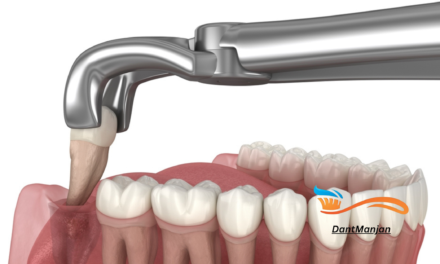How is toothpaste made?
Well, toothpaste is made up of a bunch of ingredients that work together to keep your teeth clean and healthy. The main components are typically fluoride (which protects against cavities), abrasives (like baking soda or silica) that scrub away plaque and stains, and some form of flavouring to make it taste good. To create the actual paste, these ingredients are mixed with water and other additives like binders, which help keep everything smoothly blended. The mixture is then pumped into tubes and sealed for distribution. There’s a lot of science behind creating the perfect toothpaste formula – it has to be strong enough to get rid of germs but gentle enough not to damage your enamel or gums – but in the end, it all comes down to keeping those pearly whites shining bright!
How is toothpaste manufactured?
Toothpaste is one of the most essential hygiene products available on the market. It is used for cleaning teeth, maintaining oral hygiene, and preventing tooth decay. Toothpaste is a combination of various ingredients, ranging from abrasive compounds to fluoride, which provides optimal dental care. In this essay, we will discuss how toothpaste is made, from its ingredients to its manufacturing process.
The primary ingredients found in toothpaste are fluoride, abrasives, detergents, humectants, and flavouring. Fluoride prevents tooth decay, while abrasives help remove plaque and stains from the teeth’s surface. Detergents such as sodium lauryl sulfate prevent toothpaste from separating while being used, while humectants like glycerin prevent toothpaste from drying out. Flavouring such as mint or spearmint oil gives toothpaste a refreshing sensation.
The manufacturing process of toothpaste starts with the mixing of all the ingredients to form a thick paste. Next, the paste is filled into tubes or containers. The containers are then capped, labelled, and shipped to stores for consumers to purchase. The production process of toothpaste requires adherence to strict quality control measures to ensure the final product is of high quality and safe to use.
Toothpaste also goes through various testing procedures, such as pH testing and microbial testing, to ensure its effectiveness and safety. The pH test confirms the toothpaste’s acidity to make sure it’s compatible with the oral cavity’s pH. Microbial testing examines the toothpaste for any bacterial contamination that may harm the consumer.
Toothpaste production is heavily regulated by various government agencies around the world to ensure the product’s safety and effectiveness. Most countries require manufacturers to display a list of ingredients on the toothpaste package, indicating the product’s potency and possible side effects.
In conclusion, the production of toothpaste is a complex process that involves a combination of various ingredients, manufacturing processes, and testing procedures. The careful selection of ingredients in toothpaste, coupled with strict quality testing, ensures that consumers benefit from high-quality and safe oral hygiene products. Therefore, it is essential to use toothpaste to maintain healthy teeth and gums for a better quality of life.
The Role of Quality Control in the Making of Sensodyne Tooth.
Sensodyne Tooth is a leading brand in the oral healthcare industry, known for its effectiveness in combating tooth sensitivity. The brand’s success can be attributed to its high-quality standards, which are maintained through a robust quality control system. Quality control plays a critical role in the making of Sensodyne Tooth, ensuring that the product meets all the necessary specifications and requirements to deliver its promised benefits.
The first aspect of quality control in the making of Sensodyne Tooth is raw material selection. The product is made using specific raw materials, and the quality control team ensures that only high-quality raw materials are used in production. This selection process is guided by strict criteria that assess factors such as purity, quality, and consistency. Any raw materials that don’t meet the required quality standards are not used, thus ensuring the final product’s quality is maintained.
The second aspect of quality control in the making of Sensodyne Tooth is the manufacturing process. The manufacturing process is also guided by strict protocols that ensure the product’s quality is maintained. The quality control team monitors the manufacturing process from start to finish, ensuring that each stage of production is carried out according to specifications. Any deviations from the set protocols are flagged, and corrective action is taken to ensure the final product meets the required quality standards.
The third aspect of quality control in the making of Sensodyne Tooth is the testing process. The final product undergoes rigorous testing to ensure that it meets all the required specifications and is safe for use. The testing process is carried out at different stages of production, starting from the raw materials to the final product. Any product that fails the testing stage is rejected, and corrective action is taken to ensure that the final product meets the required quality standards.
In conclusion, quality control plays a critical role in the making of Sensodyne Tooth. The brand’s success is built on its ability to deliver a reliable product that meets the varying needs of its customers. This requires a robust quality control system, which ensures that only high-quality raw materials are used in production, the manufacturing process is carried out to specification, and the final product is tested to ensure it meets all the required specifications. Through a sustained commitment to quality control, Sensodyne Tooth has cemented its position as a leading brand in the oral healthcare industry.
7 Reasons Why Sensodyne Toothpaste Manufacturing Process is.
Sensodyne toothpaste has gained a lot of recognition in the market due to its unique manufacturing process. Its manufacturing process is widely regarded as one of the best because of the following reasons:
Firstly, the Sensodyne toothpaste manufacturing process is exceptionally hygienic, ensuring that the final product is free of any contaminants that could harm the consumers. The manufacturing facility is designed to meet strict sanitation standards, and all the employees are required to adhere to standard operating procedures that promote cleanliness, hygiene, and safety.
Secondly, the manufacturing process is optimized for consistency, which guarantees that every batch of toothpaste produced meets the same high standards. This is critical in ensuring that customers can rely on the quality of Sensodyne toothpaste, and it also enables the company to achieve its goal of delivering superior protection against tooth sensitivity with every tube.
Thirdly, the Sensodyne manufacturing process puts a significant emphasis on quality control, which involves rigorous testing to ensure that the toothpaste meets both internal and external standards. All ingredients that go into the toothpaste must meet the company’s stringent quality standards, and the final product undergoes a series of tests to ensure it is safe and effective.
Fourthly, the manufacturing process is highly automated, and this enables the company to make large volumes of toothpaste in a shorter time frame compared to traditional manual manufacturing methods. The automated process also significantly reduces the likelihood of human errors, which could affect the consistency and quality of the final product.
Fifthly, the Sensodyne toothpaste manufacturing process is designed to minimize the environmental impact of the production process. All the materials used in the production process are sourced responsibly and sustainably. The manufacturing facility is designed to minimize energy consumption and waste generation, and the company regularly reviews its processes to identify opportunities to increase efficiency, reduce waste, and minimize its environmental footprint.
Sixthly, the Sensodyne toothpaste manufacturing process ensures that the final product is fit for use by all individuals, irrespective of their background and medical history. The toothpaste is formulated to be effective but gentle on the teeth and gums, making it suitable for use by people with sensitive teeth, bleeding gums, or other dental conditions.
Finally, the manufacturing process is supported by a strong culture of continuous improvement, where the company regularly reviews all aspects of its operations to identify opportunities for improvement. This culture ensures that the company stays at the forefront of innovation and that its customers continue to receive the best possible product.
In conclusion, the Sensodyne toothpaste manufacturing process is one of the best in the industry because of its focus on hygiene, consistency, quality control, automation, sustainability, inclusivity, and continuous improvement. These factors have collectively contributed to the success and popularity of Sensodyne toothpaste, and have made it a trusted choice among individuals with sensitive teeth around the world.





